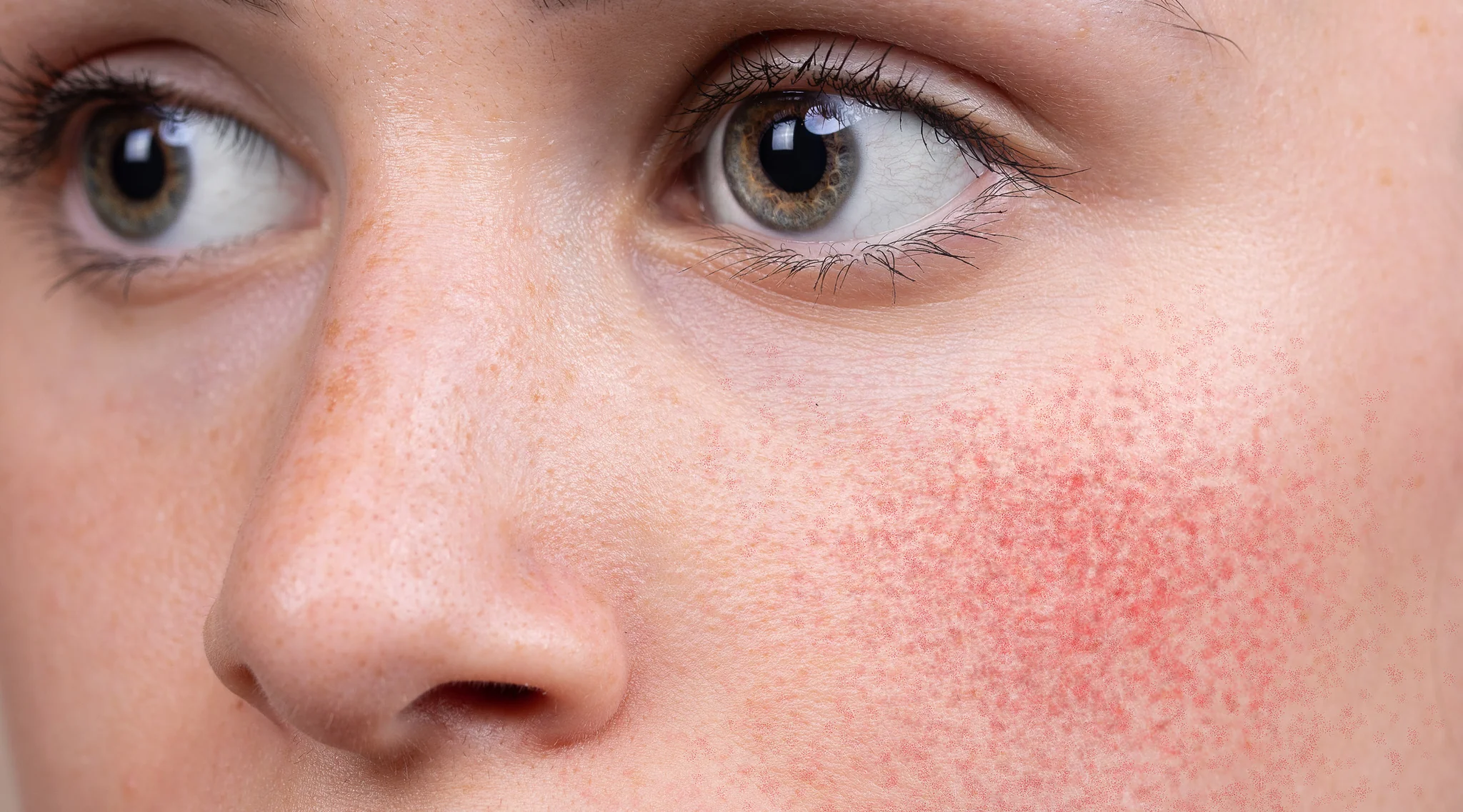Rosacea is a common but often misunderstood skin condition that affects millions of people worldwide. Characterized by facial redness, visible blood vessels, and sometimes, small bumps, it can be a source of discomfort and self-consciousness. To be clear, It is a chronic skin condition that primarily affects the face, typically appearing in adulthood. Its exact cause remains unknown, but several factors are believed to contribute to its development. But the good thing is that some of the possible ways to treat Rosacea has already been found. In this article, we will delve into what rosacea is, explore its potential causes, and discuss effective treatment options to help you manage this skin condition and regain your confidence.
What is Rosacea?
Rosacea is a chronic skin condition and its symptoms are persistent redness, visible blood vessels, and, in some cases, the development of red, solid bumps or pus-filled bumps that resemble acne. This condition typically appears in adulthood and can vary in severity. it is believed that it’s development involves the combination of genetic, environmental, and vascular factors. Common triggers for rosacea flare-ups include exposure to extreme temperatures, wind, sunlight, spicy foods, alcohol, hot beverages, and stress.
Rosacea can manifest in various ways, here are some of them:
Facial Redness: Persistent redness on the central part of the face, including the cheeks, nose, and forehead.
Visible Blood Vessels: Small blood vessels become visible, creating a spider-like appearance on the skin.
Papules and Pustules: Some individuals may develop red, solid bumps (papules) or pus-filled bumps (pustules) resembling acne.
Eye Problems: In some cases, rosacea can lead to eye irritation, dryness, and redness, a condition known as ocular rosacea.
Causes of Rosacea
While the exact cause of rosacea is still uncertain, several factors and triggers have been identified:
Genetics: A family history of rosacea may increase your risk of developing the condition.
Dermatitis Mites: The presence of Demodex mites on the skin may contribute to rosacea in some cases.
Abnormal Blood Vessels: Abnormalities in blood vessels near the surface of the skin may lead to flushing and redness.
Environmental Factors: Exposure to extreme temperatures, wind, sunlight, or hot beverages can trigger rosacea flare-ups.
Diet and Lifestyle: Consuming spicy foods, alcohol, and hot drinks, as well as smoking, may worsen symptoms in some individuals.
Treatment for Rosacea
Fortunately, rosacea can be managed effectively with various treatment options tailored to the severity of the condition. Here are some common approaches to treat rosacea:
Topical Creams: Dermatologists often prescribe topical creams or gels containing ingredients like metronidazole or azelaic acid to reduce redness and inflammation.
Oral Antibiotics: In more severe cases, oral antibiotics such as doxycycline or minocycline may be recommended to control the symptoms.
Laser or Light Therapy: Intense pulsed light (IPL) or laser therapy can target visible blood vessels and redness, providing long-term improvement.
Eye Drops: If ocular rosacea is present, your doctor may prescribe eye drops to alleviate discomfort.
Avoiding Triggers: Identifying and avoiding triggers like spicy foods, alcohol, and sun exposure can help prevent flare-ups.
Gentle Skincare: Using mild, non-irritating skin care products and sunscreen daily is essential for managing rosacea and protecting the skin from UV rays.
Rosacea is a common, chronic skin condition that can affect your self-esteem and quality of life. While its exact cause is still uncertain, effective treatments are available to manage its symptoms. By consulting with a dermatologist and following a tailored treatment plan, you can take control of your rosacea and enjoy clearer, more comfortable skin. Remember, early intervention and lifestyle adjustments can play a crucial role in minimising the impact of rosacea on your daily life.


